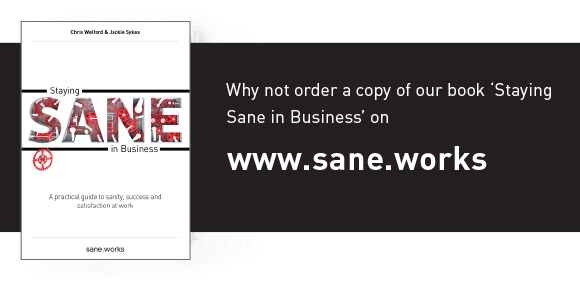
Not Nervous Enough
You will know the uncomfortable, restless feeling of being anxious. Whether you are concerned about meeting a deadline, a presentation you have to give or your performance at an important meeting, your feeling of fear does certainly not add any enjoyment to tasks that may be daunting enough in themselves!
It’s tempting to think that you just need to calm down and relax but the research evidence suggests something different.
It turns out that some anxiety is a good thing as it gives you the energy to get started and then stick with it – but this only works when you are positive and motivated.
A recent study found that the relationship between anxiety and performance on a maths test was like and inverted U shape. Performance was highest at medium levels of anxiety and better than low or high anxiety states. But this only applied where somebody liked doing the test and was motivated to do well!
These findings are in line with a popular coaching tool that aims to identify whether you are approaching a task with appropriate effort and apprehension, as opposed to being disproportionately relaxed or anxious.
Think of three zones:
- Firstly, the comfort zone: here the environment is familiar and tasks are easy, however, there is no development or challenge and there won’t be any personal growth.
- In contrast, in the panic zone tasks are very unfamiliar and seem overwhelmingly difficult and unbearable. Here, your anxiety seems to paralyze you and research has shown that on top of the physical symptoms such as shortness of breath, fatigue and increased heartbeat, high levels of anxiety can trigger cognitive impairments such as reduced concentration or even personality changes. So, the panic zone is really not a great place for you to be!
- The middle-ground is the stretch Only in the stretch zone can you face a challenge with appropriate apprehension but without burning out. This is where real development happens!
How do you find your stretch zone?
The first thing to do is really understand what motivates you; what is stimulating, interesting and above all, what you attach meaning to. We look at this in depth in the first chapter of Staying Sane in Business. The keys to learning and growth are on the motivation keyring!
The second thing to do, is work out where your current level of anxiety is.
If you are already in the panic zone, the challenge is to lower your anxiety levels. It could be that you are suffering limiting beliefs about yourself and that this is leading to irrational fear. It can be helpful to identify these beliefs and turn them into something positive. You can learn to ground yourself, to breathe more effectively and to think differently. Again, loads more on this in our book…
If you are in the comfort zone, your challenge is the opposite. You need to invoke a little positive anxiety in yourself to avoid “rust out”. Change your routine, incorporate a new skill or approach, widen the scope of what you are doing, present your findings in a different way …
But remember, the foundation of all of this is motivation! If you are struggling with that, get in touch as we can provide support that ranges from individual coaching through to bite-sized learning in groups.



Start The Discussion